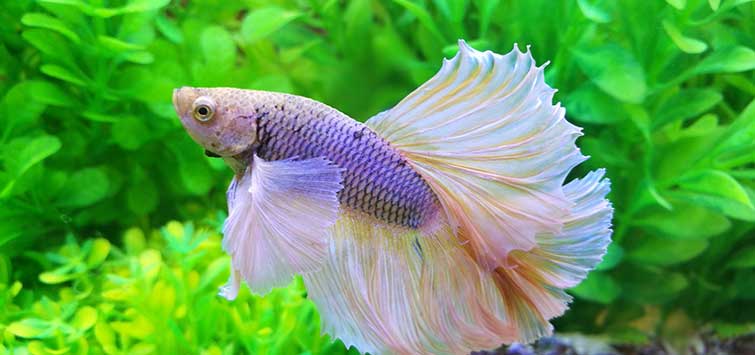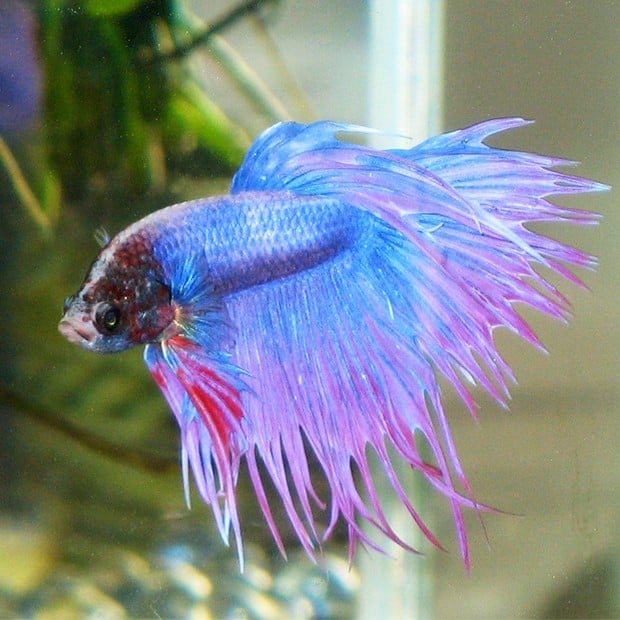Betta Fish Diet: What to Feed Your Betta for Optimum Wellness
Betta Fish Diet: What to Feed Your Betta for Optimum Wellness
Blog Article
The Ultimate Guide to Betta Fish Care: Crucial Tips for Preserving a Healthy And Balanced and Thriving Aquarium Environment
Effective Betta fish care demands a comprehensive understanding of their distinct environmental and physiological requirements. Establishing an ideal fish tank starts with choosing the right storage tank size and guaranteeing optimal water problems, which are vital for the health and wellness and health of your Betta. Understanding proper feeding techniques and developing a favorable environment can substantially affect your fish's vitality and actions. As you take into consideration these foundational aspects, it becomes clear that maintaining a growing fish tank atmosphere requires attention to information and continuous commitment. What details approaches will you carry out to improve your Betta's lifestyle?
Selecting the Right Container
Picking the suitable container for your Betta fish is essential to guaranteeing its wellness and health. Bettas prosper in settings that imitate their all-natural environments, which generally include tranquility, warm waters. A container dimension of at the very least five gallons is recommended to give adequate swimming space, as smaller storage tanks can bring about stress and health and wellness concerns for these vibrant fish.
When selecting a storage tank, take into consideration the storage tank's form and filtering system. Additionally, a dependable filtration system is necessary to maintain water top quality and reduce the regularity of water adjustments.
Temperature regulation is one more vital factor; Bettas prefer water temperatures in between 76 ° F and 82 ° F. Spending in a great heater will certainly make certain that the water continues to be within this variety, promoting a healthy and energetic lifestyle for your Betta. Providing suitable tank decors and concealing spots will certainly assist reduce stress and anxiety and urge all-natural habits, additionally improving your Betta's well-being.
Keeping Water High Quality
Keeping optimum water quality is important for the wellness and long life of Betta fish. This calls for routine monitoring of various parameters, consisting of temperature level, pH, ammonia, nitrite, and nitrate degrees.
The pH level ought to ideally fall in between 6.5 and 7.5. Regular testing using a reliable water screening kit can aid ensure these specifications remain within the appropriate ranges. Ammonia and nitrite degrees need to constantly be at 0 ppm, as even low focus can be harmful to Betta fish. Nitrate levels ought to be kept under 20 ppm to avoid lasting wellness concerns.
Normal water changes are important to maintaining water quality. Furthermore, integrating a durable filtration system can help in keeping water clarity and high quality, supplying a much healthier habitat for your Betta fish.
Ideal Feeding Practices
Offering a well balanced diet plan is crucial for the health and vibrant coloration of Betta fish, dig this as their nutritional needs play a considerable role in their general wellness. Betta fish are carnivorous by nature, needing a diet plan high in healthy protein. A mix of top quality pellets, icy or online foods such as bloodworms, brine shrimp, and daphnia can provide the essential nutrients they need.
Feed your Betta fish a couple of times a day, supplying just what they can eat within a couple of minutes to avoid overfeeding and maintain water high quality. Overfeeding can bring about obesity and health and wellness concerns, including swim bladder disease. It is important to check their nutritional consumption and readjust part sizes accordingly.
In addition to healthy protein, a balanced diet plan should consist of minerals and vitamins to promote optimum wellness. Think about supplementing their diet with top quality flakes or pellets specifically formulated for Betta fish, as these usually contain required additives.

Creating an Ideal Habitat

Water high quality is paramount; maintain a temperature in between 76 ° F and 82 ° F, and make sure the pH degree ranges from 6 - betta fish.5 to 7.5. Routine water changes of 25-50% weekly will certainly help maintain contaminants at bay and make certain a secure environment
Including plants and concealing look what i found areas is essential, as Betta fish are naturally territorial and enjoy having locations to discover and pull back. Live or silk plants, along with caverns and ornaments, can create a stimulating environment.
:strip_icc()/how-long-do-bettas-live-1380782-hero-813aa5d34bab48cdb333edfe02471dad.jpg)
Regular Health And Wellness Checkups
Carrying out imp source regular wellness check-ups is vital for guaranteeing the well-being of Betta fish, as early detection of prospective problems can avoid major health issue. These checkups ought to include a complete assessment of the fish's physical condition, behavior, and ecological elements.
Begin by observing the Betta fish for any type of signs of distress, such as lethargy, loss of cravings, or unusual swimming patterns. Additionally, evaluate the fins and body for indications of discoloration, sores, or fin rot, which can suggest infections or bloodsuckers. On a regular basis checking the water top quality in the fish tank is similarly vital; criteria such as pH, ammonia, nitrite, and nitrate levels need to be kept within optimal varieties to avoid tension and illness.
In addition, consider preserving a log of health and wellness observations and water quality examinations. This record can facilitate the recognition of fads or repeating issues. If any irregularities are found during the examination, it is vital to seek advice from a veterinarian experienced in water pets. Prompt treatment can make a considerable difference in the healing of your Betta fish, guaranteeing a lengthy and healthy and balanced life in a well-kept aquarium environment.
Verdict
In final thought, effective Betta fish care pivots on creating and keeping an optimal fish tank environment. By adhering to these standards, aquarists can promote the wellness and vibrancy of Betta fish, ultimately resulting in a growing water environment.
Report this page